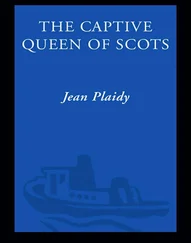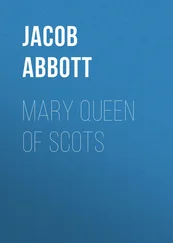Henry Bell - Life of Mary Queen of Scots, Volume 2 (of 2)
Здесь есть возможность читать онлайн «Henry Bell - Life of Mary Queen of Scots, Volume 2 (of 2)» — ознакомительный отрывок электронной книги совершенно бесплатно, а после прочтения отрывка купить полную версию. В некоторых случаях можно слушать аудио, скачать через торрент в формате fb2 и присутствует краткое содержание. Жанр: foreign_antique, foreign_prose, на английском языке. Описание произведения, (предисловие) а так же отзывы посетителей доступны на портале библиотеки ЛибКат.
- Название:Life of Mary Queen of Scots, Volume 2 (of 2)
- Автор:
- Жанр:
- Год:неизвестен
- ISBN:нет данных
- Рейтинг книги:5 / 5. Голосов: 1
-
Избранное:Добавить в избранное
- Отзывы:
-
Ваша оценка:
- 100
- 1
- 2
- 3
- 4
- 5
Life of Mary Queen of Scots, Volume 2 (of 2): краткое содержание, описание и аннотация
Предлагаем к чтению аннотацию, описание, краткое содержание или предисловие (зависит от того, что написал сам автор книги «Life of Mary Queen of Scots, Volume 2 (of 2)»). Если вы не нашли необходимую информацию о книге — напишите в комментариях, мы постараемся отыскать её.
Life of Mary Queen of Scots, Volume 2 (of 2) — читать онлайн ознакомительный отрывок
Ниже представлен текст книги, разбитый по страницам. Система сохранения места последней прочитанной страницы, позволяет с удобством читать онлайн бесплатно книгу «Life of Mary Queen of Scots, Volume 2 (of 2)», без необходимости каждый раз заново искать на чём Вы остановились. Поставьте закладку, и сможете в любой момент перейти на страницу, на которой закончили чтение.
Интервал:
Закладка:
5 5 Goodall, vol. ii. p. 316. – Keith, p. 355; Appendix, p. 136. – Anderson, vol. ii. p. 270. vol. iv. p. 183 and 188. – “Martyre de Marie,” in Jebb, vol. ii. p. 210. It would be difficult to explain why Robertson, who, in the Dissertation subjoined to his History, allows the authenticity of the documents which detail the particulars of this important conference at Craigmillar, should not have taken the slightest notice of it in his History. There is surely something indicative of partiality in the omission. Miss Benger, who is not always over-favourable to Mary, remarks on her decision regarding a divorce; – “It is difficult to develope the motives of Mary’s refusal. Had she secretly loved Bothwell, she would probably have embraced the means of liberty; and had she already embarked in a criminal intrigue, she would not have resisted the persuasions of her paramour. If, influenced alone by vindictive feelings, she sought her husband’s life, she must have been sensible that, when the nuptial tie was dissolved, he would be more easily assailable. Why then did she recoil from the proposal, unless she feared to compromise herself by endangering Darnley’s safety, or that some sentiments of affection still lingered in her heart? It has been supposed, that she dreaded the censures which might be passed on her conduct in France; or that she feared to separate her interests from those of her husband, lest she should injure her title to the English crown. All these objections are valid when addressed to reason, but passion would have challenged stronger arguments.” – Memoirs, vol. ii. p. 301. – Blackwood, in his Martyre de Marie , mentions, that Mary upon this occasion told her nobility, that “her husband was yet young, and might be brought back to the right path, having left it principally in consequence of the bad advice of those who were no less his enemies than her’s.” – “This answer,” adds Blackwood, “was far from being agreeable to the Lords, proving to them that her Majesty’s present estrangement from her husband was more from the necessity of the times, than because she had ceased to love him.”
On the 11th of December, Mary proceeded to Stirling, to make the necessary arrangements for the baptism of her son, which she determined to celebrate with the pomp and magnificence his future prospects justified. Darnley, who had been with the Queen a week at Craigmillar Castle, and afterwards came into Edinburgh with her, had gone to Stirling two days before. 6 6 Chalmers, vol. ii. p. 173. – Keith, Preface, p. vii.
Ambassadors had arrived from England, France, Piedmont, and Savoy, to be present at the ceremony. The Pope also had proposed sending a nuncio into Scotland; but Mary had good sense enough to know, that her bigoted subjects would be greatly offended, were she to receive any such servant of Antichrist. It may have occurred to her, besides, that his presence might facilitate the negotiations for the divorce proposed by her nobility, but which she was determined should not take place. She, therefore, wrote to the great spiritual Head of her Church, expressing all that respect for his authority which a good Catholic was bound to feel; but she, at the same time, contrived to prevent his nuncio, Cardinal Laurea, from coming further north than Paris. 7 7 The above transaction, in which there is so little mystery, has been converted by Robertson into “a negociation, secretly carried on by Mary, for subverting the Reformed Church.” He cannot, it is true, very easily reconcile the “negotiation” with the fact that, “at the very time, she did not scruple publicly to employ her authority towards obtaining for the ministers of that Church a more certain and comfortable subsistence.” “During this year,” he tells us, “she issued several proclamations and Acts of Council for that purpose, and readily approved of every scheme which was proposed for the more effectual payment of their stipends.” The historian might have inquired a little more closely into the real nature of her correspondence with the Court of Rome, before charging Mary with “falsehood and deceit,” and availing himself of the subject to point a moral.
The splendour of Mary’s preparations for the approaching ceremony, astonished not a little the sober minds of the Presbyterians. “The excessive expenses and superfluous apparel,” says Knox, “which were prepared at that time, exceeded far all the preparations that ever had been devised or set forth before in this country.” Elizabeth, as if participating in Mary’s maternal feelings, ordered the Earl of Bedford, her ambassador, to appear at Stirling with a very gorgeous train; and sent by him as a present for Mary a font of gold, valued at upwards of 1000 l. In her instructions to Bedford, she desired him to say jocularly, that it had been made as soon as she heard of the Prince’s birth, and that it was large enough then; but that, as he had now, she supposed, outgrown it, it might be kept for the next child. It was too far in the season to admit of Elizabeth’s sending any of the Ladies of her own realm into Scotland; she, therefore, fixed on the Countess of Argyle to represent her as godmother, preferring that lady, because she understood her to be much esteemed by Mary. To meet the extraordinary expenditure occasioned by entertaining so many ambassadors, the Queen was permitted to levy an assessment of 12,000 l. It may appear strange, how a taxation of this kind could be imposed without the consent of Parliament; but it was managed thus. The Privy Council called a meeting both of the Lords Temporal and Spiritual, and of the representatives of the boroughs, and informed them that some of the greatest princes in Christendom had requested permission to witness, through their ambassadors, the baptism of the Prince. It was therefore moved, and unanimously carried, that their Majesties should be allowed to levy a tax for “the honourable expenses requisite.” The tax was to be proportioned in this way; six thousand pounds from the spiritual estate; – four thousand from the barons and freeholders; – and two thousand from the boroughs. 8 8 Keith, p. 359.
Till the ceremony of baptism took place, the Queen gave splendid banquets every day to the ambassadors and their suites. At one of these a slight disturbance occurred, which, as it serves to illustrate amusingly the manners of the times, is worth describing. There seems to have been some little jealousy between the English and French envoys upon matters of precedence; and Mary on the whole was inclined to favour the English, being now more connected with England than with France. It happened, however, that at the banquet in question, a kind of mummery was got up, under the superintendance of one of Mary’s French servants, called Sebastian, who was a fellow of a clever wit. He contrived a piece of workmanship, in the shape of a great table; and its machinery was so ingeniously arranged, that, upon the doors of the great hall in which the feast was to be held, being thrown open, it moved in, apparently of its own accord, covered with delicacies of all sorts. A band of musicians, clothed like maidens, singing and accompanying themselves on various instruments, surrounded the pageant. It was preceded, and this was the cause of the offence, by a number of men, dressed like satyrs, with long tails, and carrying whips in their hands. These satyrs were not content to ride round the table, but they put their hands behind them to their tails, wagging them in the faces of the Englishmen, who took it into their heads that the whole was done in derision of them, “daftly apprehending that which they should not seem to have understood.” Several of the suite of the Earl of Bedford, perceiving themselves thus mocked, as they thought, and the satyrs “wagging their tails or rumples,” were so exasperated, that one of them told Sir James Melville, if it were not in the Queen’s presence, “he would put a dagger to the heart of the French knave Sebastian, whom he alleged did it for despite that the Queen made more of them than of the Frenchmen.” The Queen and Bedford, who knew that the whole was a mere jest, had some trouble in allaying the wrath of the hot-headed Southerns.
Читать дальшеИнтервал:
Закладка:
Похожие книги на «Life of Mary Queen of Scots, Volume 2 (of 2)»
Представляем Вашему вниманию похожие книги на «Life of Mary Queen of Scots, Volume 2 (of 2)» списком для выбора. Мы отобрали схожую по названию и смыслу литературу в надежде предоставить читателям больше вариантов отыскать новые, интересные, ещё непрочитанные произведения.
Обсуждение, отзывы о книге «Life of Mary Queen of Scots, Volume 2 (of 2)» и просто собственные мнения читателей. Оставьте ваши комментарии, напишите, что Вы думаете о произведении, его смысле или главных героях. Укажите что конкретно понравилось, а что нет, и почему Вы так считаете.












